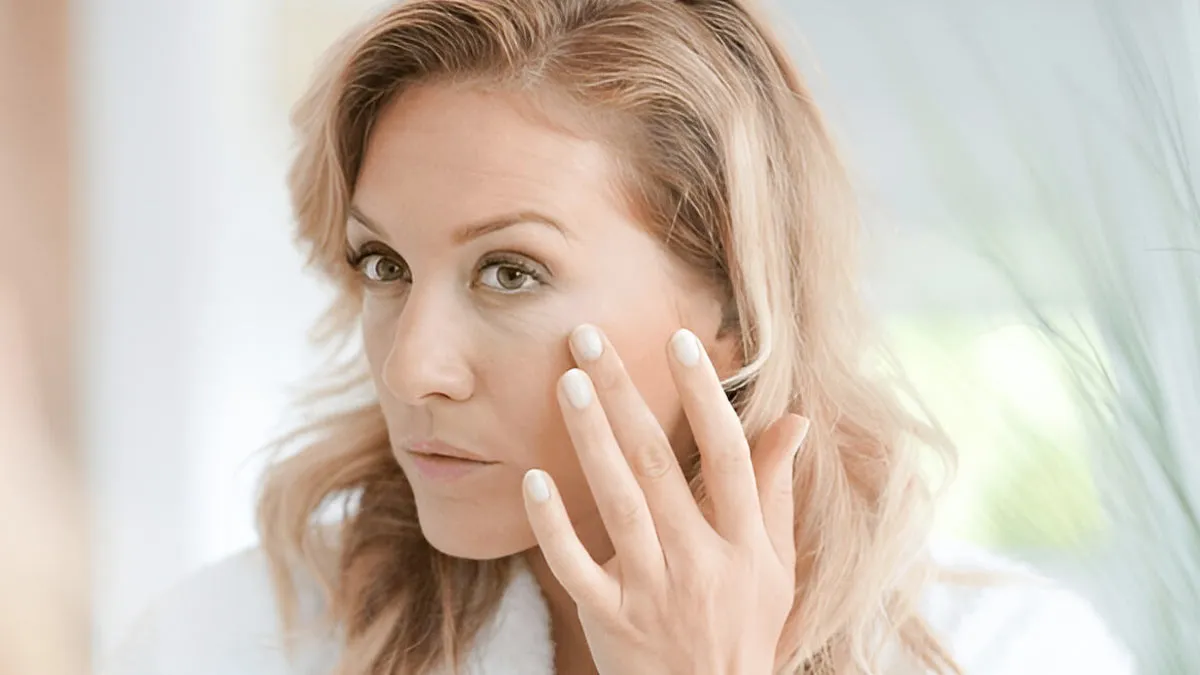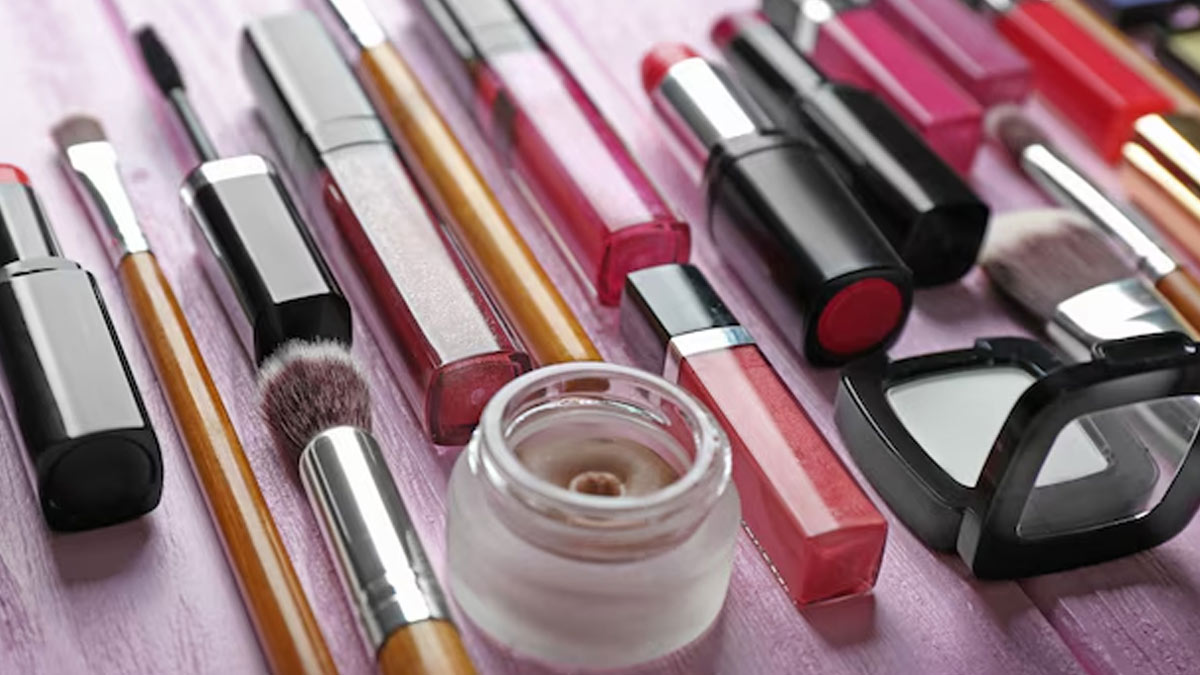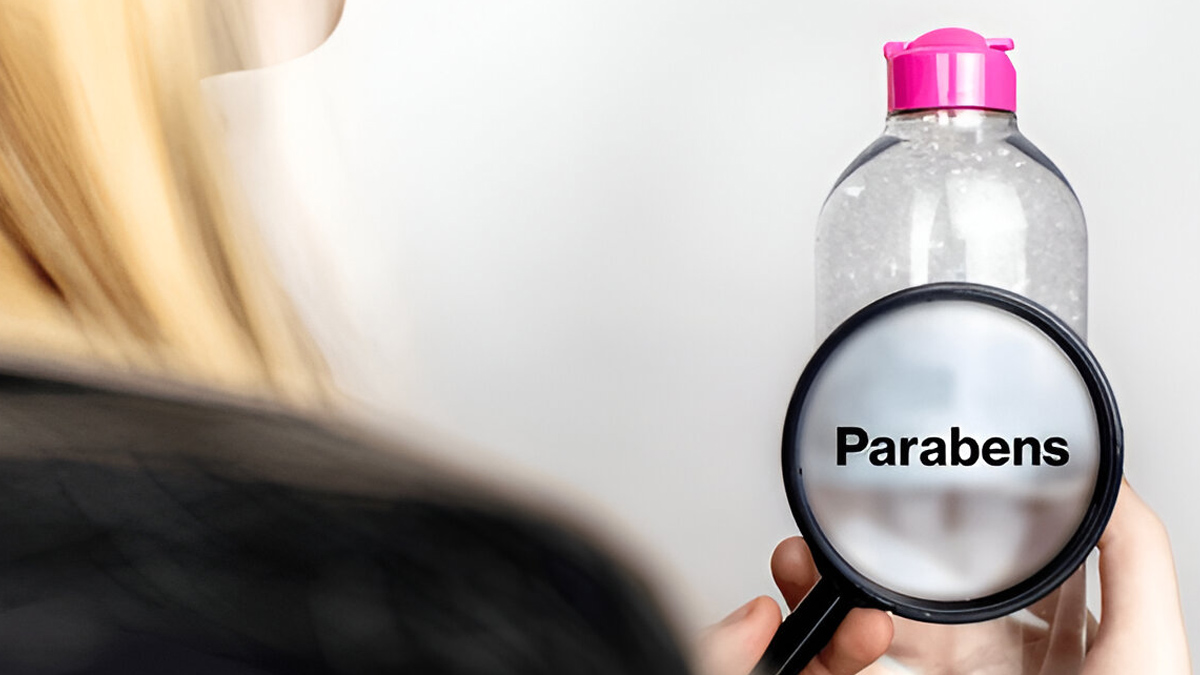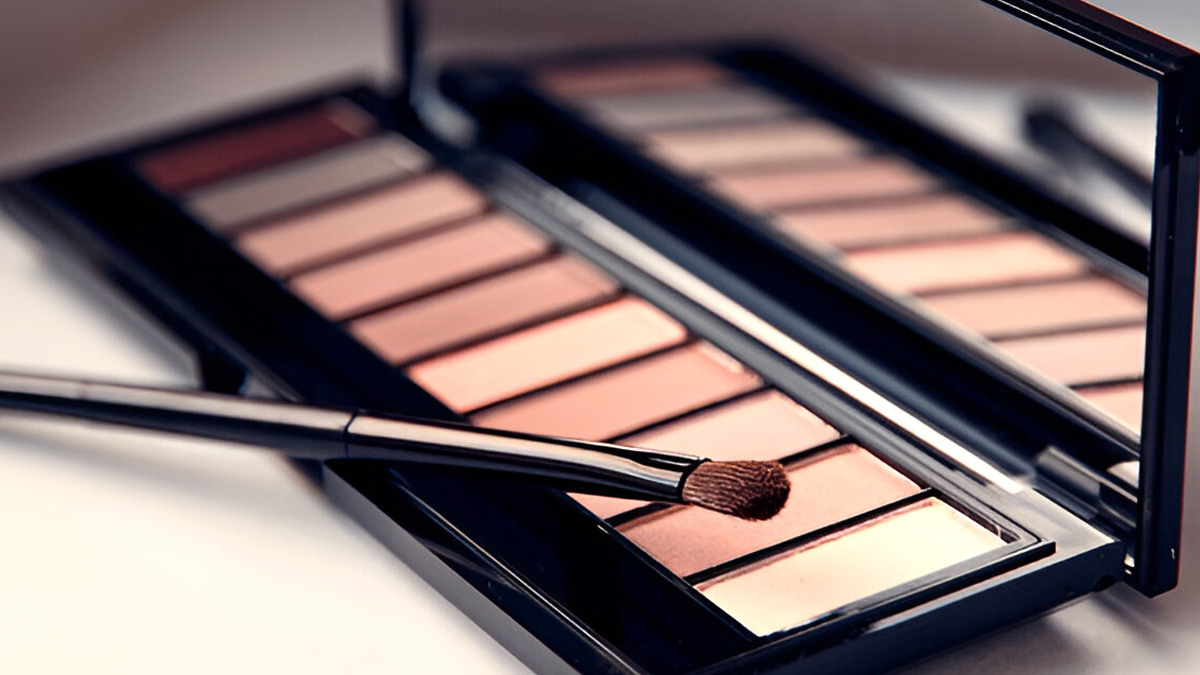
Makeup is often seen as a beauty enhancer—something that gives you confidence and helps you look your best. But what if the products you’re using every day are quietly speeding up skin aging? While good skincare is essential, the ingredients hiding in your foundation, concealer, or lipstick might be doing more harm than you realise. Certain chemicals and additives in makeup can dry out your skin, break down collagen, and lead to premature wrinkles. Let’s break down the culprits.
Table of Content:-
Makeup Ingredients That Accelerate Your Ageing
1. Alcohol (Denatured Alcohol or SD Alcohol)

Alcohol is a common ingredient in makeup, especially in foundations and primers, because it helps products dry quickly and feel lightweight. However, there’s a downside: it can strip your skin of natural oils, leaving it dehydrated. Dehydrated skin often looks dull, and over time, fine lines become more noticeable. Continuous use of alcohol-heavy products weakens the skin barrier, making it more prone to damage and aging.
What to look for on the label: Denatured Alcohol, SD Alcohol, Alcohol Denat.
2. Fragrance
Fragrance may make your makeup smell appealing, but it’s one of the most irritating ingredients for the skin. Synthetic fragrances can trigger inflammation and sensitivity, leading to long-term skin stress. Inflammation breaks down collagen and elastin—two essential proteins that keep your skin plump and youthful. If you notice redness, irritation, or dryness, your fragranced makeup might be the reason.
Tip: Opt for fragrance-free or naturally scented products.
Also Read: How Often Should You Wash Your Makeup Brushes? Dermatologist Weighs In
3. Parabens

Parabens are preservatives widely used in cosmetics to prevent bacterial growth. While they keep products fresh, studies suggest parabens may interfere with hormone balance, which indirectly affects skin health. Hormonal imbalance can accelerate collagen breakdown, making wrinkles appear sooner than expected. Methylparaben penetrates the outer skin (stratum corneum) and persists there, reducing hyaluronan and type IV collagen, while altering skin cell behavior.
Check for: Methylparaben, Propylparaben, Butylparaben.
4. Mineral Oil
Mineral oil creates a smooth finish and locks in moisture, which sounds great, but it can also trap impurities and block pores. Over time, this can lead to skin congestion, dullness, and even breakouts, all of which compromise the skin’s ability to repair itself. Poor skin health speeds up ageing signs like sagging and fine lines.
5. Talc
Talc is used in powders, foundations, and blush for its silky texture. While it doesn’t directly cause wrinkles, it can be very drying. Dry skin is more prone to creasing and losing elasticity. If you use talc-based powders daily without proper hydration, you may notice premature ageing signs around the eyes and mouth.
Also Read: Are Your Skin Problems Caused by Expired Makeup? Dermatologist Explains
6. Synthetic Colours (Coal Tar Dyes)

Those bright pigments in lipsticks or blush often come from synthetic dyes, some of which are derived from coal tar. These dyes can generate free radicals when exposed to light, which leads to oxidative stress, a major contributor to aging. Free radicals break down collagen, causing wrinkles and sagging skin.
Check for: Ingredients starting with 'CI' followed by numbers (like CI 77491).
7. Heavy Metals
Traces of heavy metals like lead, arsenic, and mercury are sometimes found in makeup, especially in lipsticks and eyeliners. While these are usually present in very small amounts, prolonged exposure can lead to skin toxicity and damage over time, indirectly speeding up aging. According to a 2025 study, ingredients like certain volatile organic compounds (VOCs) and synthetic fragrances may go beyond irritation, they might trigger neuroinflammation, headaches, or cognitive stress.
How to Protect Your Skin
- Read Labels: Check for alcohol, parabens, synthetic fragrances, and dyes before buying.
- Invest in Quality Products: Cheaper products often contain more harsh chemicals.
- Hydrate and Moisturise: A strong moisture barrier helps fight ageing.
- Double Cleanse: Remove makeup thoroughly to avoid residue damage.
- Use Antioxidants: Serums with Vitamin C or E can neutralise free radicals.
Why It Matters
Even small, daily exposures to these ageing-prone ingredients add up. Collagen and moisture just don’t snap back the way they used to, especially in the sensitive areas around your eyes and lips.
Skin-Smart Tips
- Prioritise clear labels: Look for ‘fragrance-free,’ ‘paraben-free,’ and low-alcohol formulas.
- Choose barrier-supportive ingredients: Hyaluronic acid, ceramides, and antioxidants help counteract daily damage.
- Double-cleanse gently: It is especially important for removing makeup residues that may linger and aggravate.
- Patch test new products: It can prevent skin reactions, particularly if you have reactive skin.
Bottomline
Makeup doesn’t have to be the enemy of youthful skin, but being aware of what’s inside your products is key. Harsh chemicals and irritants might make your foundation look flawless today, but in the long run, they can steal away your skin’s elasticity and glow. Choose wisely, care for your skin daily, and remember, real beauty lasts when your skin is healthy beneath the makeup.
Also watch this video
How we keep this article up to date:
We work with experts and keep a close eye on the latest in health and wellness. Whenever there is a new research or helpful information, we update our articles with accurate and useful advice.
Current Version
Sep 27, 2025 16:50 IST
Published By : Sushmita Sharma
